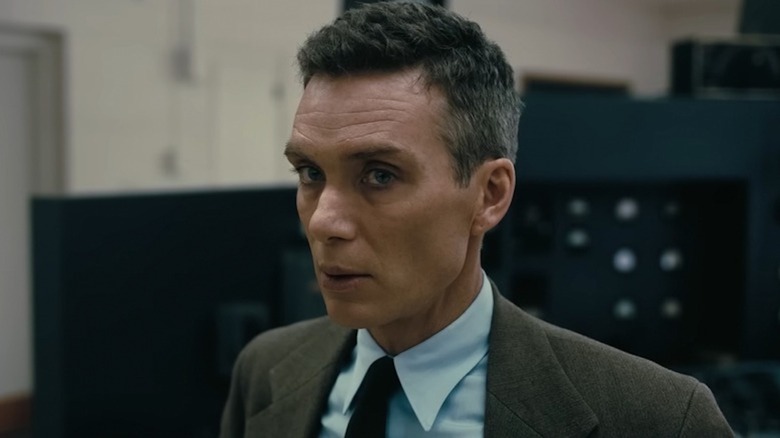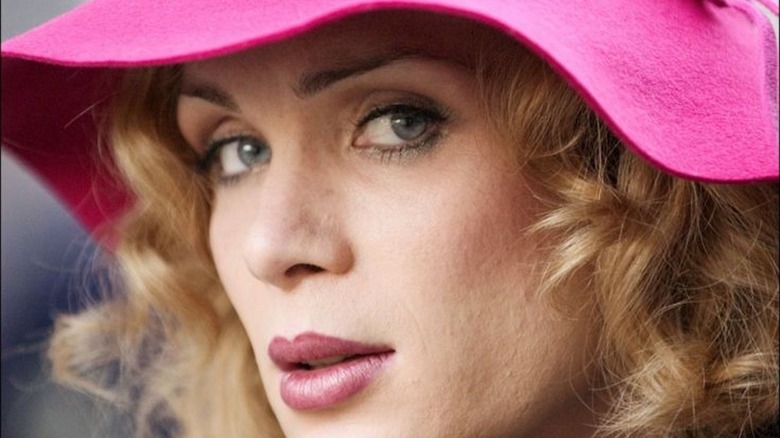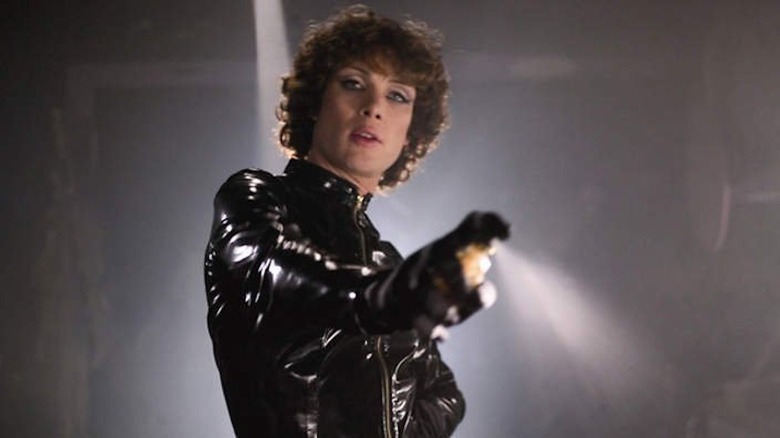Cillian Murphy Wins Best Actor For Oppenheimer, But His Best Performance Is Actually In Breakfast On Pluto
The Academy of Motion Picture Arts and Sciences doesn't always get it right. Actually, you can count on them to just about never get it right.
This is especially true of the lead acting categories, where voters often become prisoners of the moment and vote for the buzziest and/or showiest performance. This is how Al Pacino's chilling depiction of Michael Corleone's descent into pure, dead-eyed evil in "The Godfather Part II" gets passed over in favor of Art Carney's amiable portrayal of a lonely old man hitting the road with his pet cat in "Harry and Tonto." This results in overdue Oscars, which frequently create new injustices — like Denzel Washington's bravura turn as Malcolm X losing to Al Pacino's ceaseless hoo-hahing in "Scent of a Woman," which led to Washington getting his Best Actor trophy for his (admittedly entertaining) grandstanding work in "Training Day" (which cost the late Tom Wilkinson a richly deserved win for his quietly devastating performance in "In the Bedroom").
Then there's the "they're young, they'll get theirs in time" argument. Curiously, this doesn't apply to child performances, but it does occasionally keep actors in their 20s and 30s and even 40s from winning for their best work — especially if it's their first nomination. This turns the award into a lifetime achievement honor, which occasionally results in an unforgettable Oscars broadcast moment (like Jane Fonda accepting her father Henry's first Best Actor trophy because he was too ill to attend the ceremony), but, again, someone far more deserving is probably getting the shaft.
So it's refreshing to see first-time nominee Cillian Murphy win Best Actor for a superb, prime-of-his-career performance in "Oppenheimer" — not only because he was deserving, but because he might never get a role this meaty again. Almost everything about this win feels right. Almost. If we lived in a just world, he would've triumphed 18 years ago for his finest work to date — "Breakfast On Pluto."
Murphy was a victim of the Academy's finicky anti-genre bias
If you're wondering how an actor as brilliant and respected by his peers as Cillian Murphy has failed to land a single acting nomination over his 27-year acting career, his biggest mistake has been giving knockout performances in mostly genre films. He first blipped on Hollywood's radar as a young man who rouses from a coma to a world wiped out by a rage-instigating virus in "28 Days Later." The reward for this searing portrayal arrived in the summer of 2005, when he battled Christian Bale's Dark Knight as Dr. Jonathan Crane (aka the Scarecrow) in Christopher Nolan's "Batman Begins," and terrorized Rachel McAdams as a lethally charming assassin in Wes Craven's relentlessly thrilling "Red Eye." Looking over the 2005 nominees for Best Supporting Actor, it was a highly competitive year, but I'd argue that the latter turn was more deserving of a nod than Matt Dillon for "Crash."
Murphy followed his breakout 2005 with a terrific performance in Ken Loach's "The Wind That Shakes the Barley," but the Academy doesn't watch Ken Loach movies. He was superb in Danny Boyle's 2007 sci-fi thriller "Sunshine," but Fox Searchlight treated the film as strictly a commercial play. Beyond this, Murphy favored offbeat projects that weren't straight-up prestige pictures. I don't know if he was losing parts to other actors, or simply refusing to play the awards-chasing game. I'd like to think it was the latter, but, really, Murphy is such a specific type of leading man that I'm having a hard time thinking of an award-winning role from the last decade and change that would've suited him as perfectly as "Oppenheimer."
And I can't for the life of me think of an actor who could've conveyed the inner anguish of Oppenheimer with such elusive complexity as Murphy.
When Cillian met Kitten
J. Robert Oppenheimer felt like a role of destiny for Murphy, and the Academy was right to treat it as such (even if I would've ever-so-slightly preferred a Paul Giamatti win). But the character that most indelibly meshed with Murphy's inscrutable magnetism exists in a film that, sadly, too few people have ever seen.
Neil Jordan's "Breakfast on Pluto" is an endearingly oddball movie about Irish-born Patricia Braden aka Kitten, a trans woman who, having been abandoned as a child, is determined to track down her birth mother. Her quest has a clear goal, but she pursues it with a quixotic abandon. Upon transitioning, Kitten strikes out on her own and shacks up with a glam rock frontman whose side hustle is running guns for the Irish Republican Army.
We love Kitten for her earnest impulsiveness, but this quality continually thrusts her into near-fatal situations. There is something strangely charmed about Kitten's life. She survives a murder attempt via the blinding power of Chanel No. 5, and, when she's suspected of aiding the IRA in the bombing of a British disco, withstands a brutal police interrogation by disappearing into her boundless imagination.
A lovely act of empathy
If Jordan made "Breakfast on Pluto" today, he'd almost certainly cast a transgender actor, which is obviously as it should be. But in 2005, to get this film made on a budget worthy of its scope (when his last commercial success, "Interview with the Vampire," was 12 years in the rearview), he needed a marketable star. Murphy was barely that (which is likely why Jordan cast known-draw Liam Neeson in a supporting role), but he was Kitten. His kind demeanor and mesmeric eyes draw us deep into Kitten's perilous world, a world determined to chew her up and spit her out like every other supposed aberration. But Kitten is a survivor, and, despite the intensity of her reveries, she is pragmatic. She accepts the tragic condition of her existence.
Because Kitten isn't just a trans woman in a closed-minded world. She's Irish. Murphy is very much the latter, and, being a marvelously empathetic actor, does everything in his considerable power to put across the other. He loves Kitten as much as we do, and sees her through to a bittersweet final scene. Kitten gets what she wants, but not in the way she imagined it. Kitten will never have an easy go of it, but as brought to life by Murphy, we know there isn't a hateful force powerful enough in this world to dissuade her from living on her own fabulous terms. She is a gift, and so is Murphy. I'm so happy they found each other.



